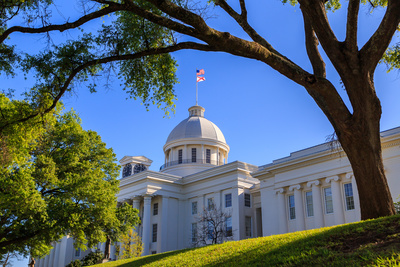
Health Care & Wellness
Here's what Prescription Drug Affordability Boards Have Been Doing in 2025 (UPLs, Affordability Reviews, and Expanded Authority)
December 15, 2025 | Mary Kate Barnauskas
August 25, 2021 | Bill Kramer

Key Takeaways:
Over a year ago, we laid out the main policy tools states were utilizing to slow the spread of COVID-19. Since that time, the vaccines have transformed the conversation and now the surging delta variant has upended the COVID-19 policy response once again. States and localities have settled on two policy tools to fight the delta variant, one old and one new.
After nearly every state (except Hawaii) relaxed their mask mandates for vaccinated individuals over the summer, the recent COVID-19 case surges and an updated CDC guideline have spurred states to reinstate indoor mask requirements for both vaccinated and unvaccinated individuals.
Currently, ten states and D.C. have mask requirements in place. Five states exclude vaccinated individuals from the mask requirements while Washington, New Mexico, Oregon, Hawaii, Louisiana, and D.C. require masks for both vaccinated and non-vaccinated individuals. Nevada is a unique case that requires masks for vaccinated individuals only within counties of “high transmission.” On Friday, Oregon will become the first state to reintroduce an outdoor mask mandate for everyone, including vaccinated individuals.

Mask mandates are a proven policy tool to help stem the spread of a respiratory virus like COVID-19. But now that they’re widely available in the United States, vaccines remain the number one tool to stop COVID-19.
The latest policy tool that states and localities are utilizing to fight COVID-19 is vaccination mandates. Last week, New York City became the first U.S. government to require proof of vaccination for employees and customers at public indoor facilities, including restaurants, gyms, and theaters. The transition period began last week but the city is not expected to begin full enforcement of the measure until September 13. As new COVID-19 cases surge around the country — primarily fueled by the delta variant — state and local leaders are turning to the stick after tempting residents with carrots to get vaccinated.
However, in addition to fierce political opposition, cities may face serious implementation challenges. The “Key to NYC Pass” program will utilize a smartphone app (alternatively, residents can show a paper vaccination card). But the U.S. lacks a central database for vaccinations and fake vaccine cards are not difficult to obtain. Hawaii struggled to implement a proof of vaccination system earlier this year. Of course, the vaccine itself is free and widely available.
San Francisco and New Orleans implemented their own vaccine mandate last week and Los Angeles plans to implement a similar requirement soon. And a greater number of states and localities have made incremental steps by mandating vaccination for specific industries, such as state employees, health care workers, and employees in long-term care facilities and schools. On the other hand, over a dozen states have banned proof of vaccination requirements implemented by local governments and in some cases by private businesses.

Policymakers everywhere are looking for ways to slow the spread of COVID-19 while avoiding the shutdowns the country experienced last year. Mask mandates are one option policymakers have relied on previously. Vaccine requirements are the latest policy tool but policymakers will be watching places like New York City closely to see how the rollout of such a massive program unfolds.
MultiState is tracking and organizing the policy responses to COVID-19 through our COVID-19 State and Local Policy Dashboard. We’ve also highlighted the various policy responses individually, including Mask Mandates and our newly launched Vaccination Requirements landing pages. We offer custom solutions to track COVID-19 policies on the state and local level. Contact us here.

December 15, 2025 | Mary Kate Barnauskas

November 5, 2025 | Mary Kate Barnauskas

November 5, 2025 | Katherine Tschopp